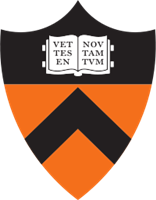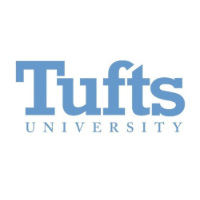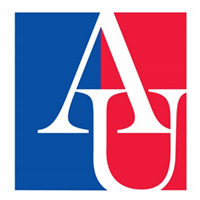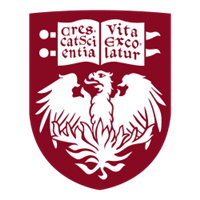What do they do?
Study the origin, development, and operation of political systems. May study topics, such as public opinion, political decisionmaking, and ideology. May analyze the structure and operation of governments, as well as various political entities. May conduct public opinion surveys, analyze election results, or analyze public documents.
-
0%
Change
Ranks #18 in job growth rate0Job Openings
Ranks #20 in net job growth
-
Princeton University
Princeton, NJ
-
Tufts University
Medford, MA
-
American University
Washington, DC
-
University of Chicago
Chicago, IL
-
George Washington University
Washington, DC
Looking for colleges that offer a specific major? Use the College Match Tool to find your best-matched schools and discover your estimated Net Price!
- Doctorate or Professional Degree (16%)
- Master's degree (42%)
- Bachelor's degree (34%)
- Associate's degree (4%)
- Some college, no degree (3%)
- High school diploma equivalent (1%)
- Less than high school diploma (1%)
Most Popular Majors that prepare Political Scientists
-
#1
-
Degrees Granted
3,807
-
Female Students
2,018
-
Male Students
1,789
-
Median Starting Salary
$44,200
-
-
#2
-
Degrees Granted
2,882
-
Female Students
1,632
-
Male Students
1,250
-
Median Starting Salary
$46,800
-
-
#3
-
Degrees Granted
1,652
-
Female Students
795
-
Male Students
857
-
Median Starting Salary
$44,500
-
-
#4
-
Degrees Granted
428
-
Female Students
140
-
Male Students
288
-
Median Starting Salary
$44,200
-
-
#5
-
Degrees Granted
414
-
Female Students
153
-
Male Students
261
-
Median Starting Salary
$44,200
-
People in this career often have these skills:
- Reading Comprehension - Understanding written sentences and paragraphs in work-related documents.
- Active Listening - Giving full attention to what other people are saying, taking time to understand the points being made, asking questions as appropriate, and not interrupting at inappropriate times.
- Speaking - Talking to others to convey information effectively.
- Active Learning - Understanding the implications of new information for both current and future problem-solving and decision-making.
- Writing - Communicating effectively in writing as appropriate for the needs of the audience.
- Critical Thinking - Using logic and reasoning to identify the strengths and weaknesses of alternative solutions, conclusions, or approaches to problems.
- Social Perceptiveness - Being aware of others' reactions and understanding why they react as they do.
- Complex Problem Solving - Identifying complex problems and reviewing related information to develop and evaluate options and implement solutions.
- Judgment and Decision Making - Considering the relative costs and benefits of potential actions to choose the most appropriate one.
- Learning Strategies - Selecting and using training/instructional methods and procedures appropriate for the situation when learning or teaching new things.
- Instructing - Teaching others how to do something.
People in this career often know a lot about:
- Law and Government - Knowledge of laws, legal codes, court procedures, precedents, government regulations, executive orders, agency rules, and the democratic political process.
- English Language - Knowledge of the structure and content of the English language including the meaning and spelling of words, rules of composition, and grammar.
- Education and Training - Knowledge of principles and methods for curriculum and training design, teaching and instruction for individuals and groups, and the measurement of training effects.
- History and Archeology - Knowledge of historical events and their causes, indicators, and effects on civilizations and cultures.
- Mathematics - Knowledge of arithmetic, algebra, geometry, calculus, statistics, and their applications.
People in this career often have talent in:
- Written Comprehension - The ability to read and understand information and ideas presented in writing.
- Oral Comprehension - The ability to listen to and understand information and ideas presented through spoken words and sentences.
- Oral Expression - The ability to communicate information and ideas in speaking so others will understand.
- Written Expression - The ability to communicate information and ideas in writing so others will understand.
- Inductive Reasoning - The ability to combine pieces of information to form general rules or conclusions (includes finding a relationship among seemingly unrelated events).
- Speech Clarity - The ability to speak clearly so others can understand you.
- Speech Recognition - The ability to identify and understand the speech of another person.
- Deductive Reasoning - The ability to apply general rules to specific problems to produce answers that make sense.
- Problem Sensitivity - The ability to tell when something is wrong or is likely to go wrong. It does not involve solving the problem, only recognizing that there is a problem.
- Near Vision - The ability to see details at close range (within a few feet of the observer).
People in this career often do these activities:
- Instruct college students in social sciences or humanities disciplines.
- Review professional literature to maintain professional knowledge.
- Develop theories or models of physical phenomena.
- Prepare scientific or technical reports or presentations.
- Advise students on academic or career matters.
- Advise others on educational matters.
- Interpret research or operational data.
- Conduct research on social issues.
- Serve on institutional or departmental committees.
- Forecast economic, political, or social trends.
- Advise others on matters of public policy.
- Evaluate civic projects or public policies.
- Prepare information or documentation related to legal or regulatory matters.
This page includes data from:

 Occupation statistics: USDOL U.S. Bureau of Labor Statistics Occupational Employment Statistics
Occupation statistics: USDOL U.S. Bureau of Labor Statistics Occupational Employment Statistics









